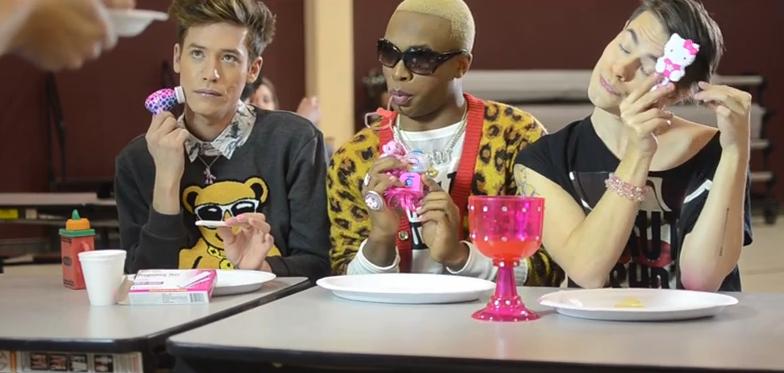If you pay even the smallest bit of attention to viral YouTube videos, you’ve almost certainly come across one of Todrick Hall’s campy creations over the past few years. One of the most impressive had to be his “ghetto” reimagining of Beauty and the Beast, and my colleague Aisha Harris has highlighted some of the other hits, including Hall’s “Cinderoncé” (a mash-up of Cinderella and Beyoncé music) and his fusion of Disney villainesses with Chicago, “Spell Block Tango.” This week, Hall is back in familiar territory with a Mean Girls spoof (he’s already set one in a predominately black high school), this time populated with mostly gay men—and if early view numbers are an indication, it’s on track to be another success.
The problem? “Mean Boyz” is, unfortunately, not nearly as clever as Hall’s earlier efforts, and in fact, it could easily be seen as offensive. Now, before I’m dismissed as a hater, let me qualify that charge. We’re not talking grave offense here, but rather the annoying kind that can result from appealing to lazy minority-humor tropes. When I clicked on this video, I wasn’t expecting a politically correct lecture, but I was expecting some insightful gay comedy. Instead, I got about five minutes of neo-Nance, sissy-boy cliché that left me feeling icky.
Obviously Hall’s previous work has often dealt—very humorously!—with certain racial and sexual stereotypes, and that’s fine. Indeed, as a gay man of color, Hall is perfectly positioned to engage in that kind of comedy. His send-up of “ghetto” life in the “Beauty and the Beat” video, for instance, felt loving and nuanced, hyperbolic in spots but generally warm throughout. But “Mean Boyz” feels cold. As far as I can tell, all of the humor in the video is predicated on how queeny the popular gay trio is, as compared to the corn-fed, relatively butch stand-in for Lindsay Lohan. Add that to the fact that the only real changes to the Mean Girls script are the substitution of a “Shade Book” for that film’s “Burn Book” and the introduction of “bottom,” and it seems like this “parody” hardly qualifies for that title. “Subversive” is out of the question.
Indeed, what’s accomplished, comically or otherwise, by replacing prissy straight girls with prissy gay dudes? The former are perhaps annoying but generally tolerated, while the latter are consistently maligned and attacked, often as much within the LGBTQ community as outside it. I get that these are somewhat intense issues to tease out of a YouTube video, but I think they’re worth considering, especially because, based on this otherwise entertaining oeuvre, we know Hall can do better. And given that he only came out publically in 2012—after expressing some troubling opinions regarding that very act—perhaps he will with time. He’s got talent and a great platform—but both come with responsibility.
